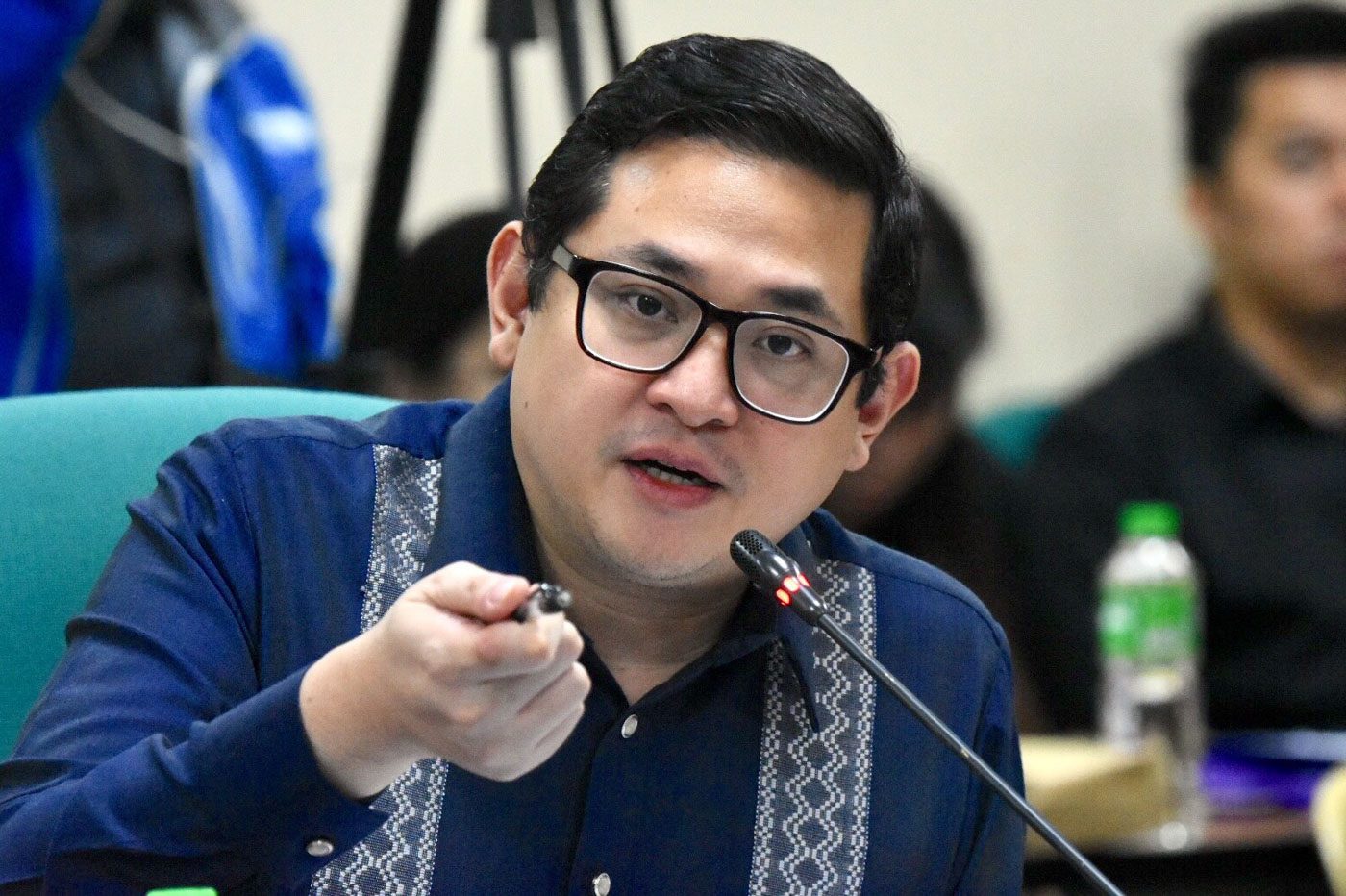SUMMARY
This is AI generated summarization, which may have errors. For context, always refer to the full article.

MANILA, Philippines – Senator Paolo Benigno Aquino IV on Tuesday, August 7, urged the country’s economic managers to expand subsidies for poor households affected by the tax reform law in the proposed 2019 national budget.
Aquino made the call the during the budget briefing of the Development Budget Coordination Commitee (DBCC) to the Senate on Tuesday, hours after the Philippine Statistics Authority reported that inflation climbed to a new high of 5.7% in July.
He said subsidies provided under the 2018 budget do not fully cover all households that need financial assistance to cope with the impact of the tax reform law. He asked Budget Secretary Benjamin Diokno for a recomputation of the total number of beneficiaries.
“You might need to take a second look at that, Secretary [Diokno], because it’s not 10 million [beneficiaries covered by the law]. You might need a recomputation on the coverage. I leave you to reckon with the law,” Aquino said.
The senator said an estimated 14 million households are in need of financial aid under the unconditional cash transfer (UCT) program, but the government has pegged the number of beneficiaries at only 10 million.
Under the law, UCT beneficiaries include households that are part of the Pantawid Pamilyang Pilipino Program, other poor households from the National Household Targeting System (NHTS), and indigent social pensioners.
Aquino argued that beneficiaries from 4PS and NHTS exceed 10 million already.
Rappler has reached out to Diokno for comment, but he has yet to reply as of this posting.
Challenges in distribution: The senator pointed out that these mitigating measures were rolled out late into the year or months after poor families began to feel the effects of the impact of higher prices.
“[W]e have to make sure na umaabot ang pera [at] effiicient ang pagbibigay ng pera. All the data we have shows that there’s a leakage of 15% to 25%. Ano gagawin natin sa 1.5 million families na posibleng hindi makakuha [ng subsidy?]” Aquino said.
(We have to make sure that the money reaches them and distribution is efficient. All the data we have shows that there’s a leakage of 15% to 25%. What will we do with the 1.5 million families that are possibly not receiving subsidies?)
Roughly half of the intended beneficiaries, or 5.6 million households, have received P2,400 worth of subsidies year from the government as of July 25. The total budget for the program for 2018 is P25.67 billion. (READ: DSWD chief: P2,400 subsidy not enough to shield poor from TRAIN impact)
Aquino said the government should also be able to account for the “leakages” – 1.5 million to 2 million beneficiaries who are “not necessarily poor” – to ensure that only “those who need it most” receive aid.
In response to the “leakages,” National Economic and Development Authority Undersecretary Rosemarie Edillon said they “were not supposed to be given aid,” but they are already part of the “near poor.” So the government is “still providing support for them.”
In 2019, the subsidy will increase to P300 per month or P3,600 a year, with a proposed budget of P38.5 billion.
Include tricycle drivers too: Currently, only drivers of public utility jeepneys are entitled to receive the P5,000 fuel subsidy under the Pantawid Pasada program.
Aquino said that tricycle drivers – who shoulder higher excise taxes from gasoline – should also be part of the program.
Finance Assistant Secretary Tony Lambino said the Department of Finance would have to check Aquino’s proposal with the Land Transportation Franchising and Regulatory Board and the Department of Transportation since these two were involved in designing the fuel subsidy program.
The government allocated P977 million for jeepney drivers in the remaining 6 months of 2018, under the unprogrammed appropriations of this year’s national budget.
Some P3.86 billion would be allocated for the same purpose in 2019 – 4 times the 2018 allocation – increasing the subsidy per jeepney driver to P20,515 per year.
Freeze fuel excise taxes: Aquino reiterated his call to suspend the implementation of increased excise taxes on fuel in 2019 under the tax reform law.
The only safeguard provision that would suspend the increases is if Dubai crude oil exceeds $80 per barrel.
Aquino is pushing for legislation that would suspend the imposition of excise tax on fuel should inflation breach a level that is “unbearable” for the market by January 2019.
“We need a law that will safeguard when inflation is going up. It is better that we have that safeguard than mamilipit tayo (we writhe) in finding a way to suspend the increase come January,” Aquino said.
“Crude oil is expected to increase in the next 7 years. We are at the 4th year. I don’t think it’s logical to increase [excise taxes] even more,” Aquino added. – Rappler.com
Add a comment
How does this make you feel?
There are no comments yet. Add your comment to start the conversation.